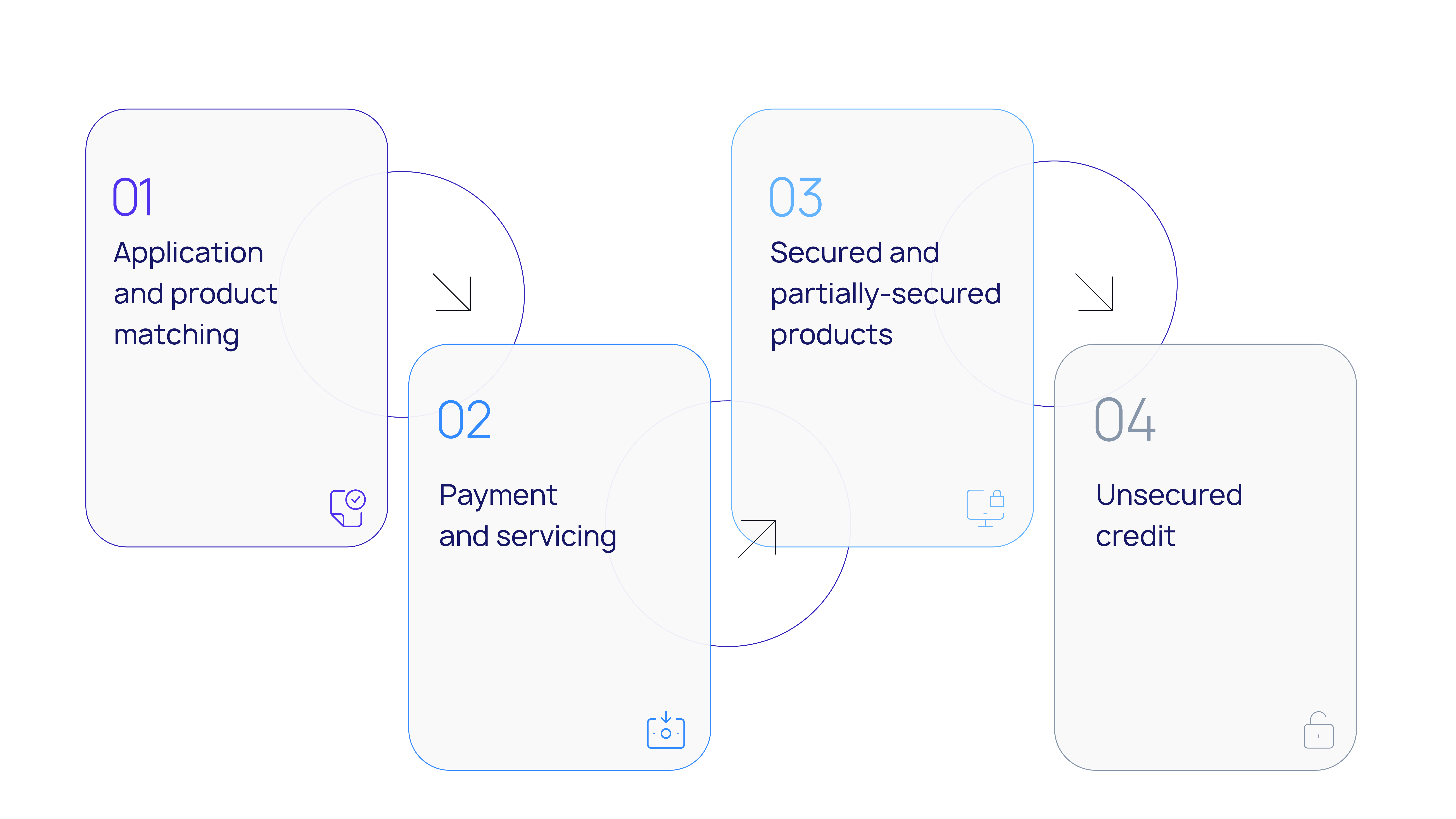Keeping Up with Compliance: December 2024
Welcome to another issue of LoanPro’s Compliance & Fintech Newsletter, bringing you news from across the industry with a focus on compliance. Expect new editions monthly. Subscribe to the newsletter to make sure you don’t miss an issue.
Compliance actions & changes in the industry
CFPB
- The CFPB issues a slew of final rules. On topics ranging from overdraft fees, the FCRA, PACE transactions, and credit reporting on abuse survivors, the CFPB issued a set of rules clarifying and amending existing regulations. While protecting the credit scores of fraud victims seems like a goal most can get behind, others have criticized the CFPB for essentially telling banks to lose money.
- Republican lawmakers ask the CFPB to quit issuing final rules. Responding to the CFPB’s aforementioned slew of final rules, Republican representatives on the House Financial Services Committee wrote a letter to agency head Rohit Chopra asking him to stop “finalizing partisan rulemaking”, noting that a (Republican-controlled) Congress retains the power to disapprove final rules from the Biden administration. This did not deter the CFPB from releasing a rather ambitious agenda for 2025.
- DOGE takes aim at the CFPB. Although president-elect Trump has yet to take office, his fans and critics alike anticipate his new Department of Government Efficiency (DOGE) will limit, claw back, or outright "delete" the CFPB. Critics of the CFPB argue its experienced significant mission creep, calling for DOGE to interfere. Others defend the CFPB’s work, noting that it has shut down banks and fintechs that engaged in fraud.
- CFPB sues bank, alleging what sounds like terrible customer service. The CFPB is suing Comerica Bank for mishandling 3.4 million federal benefits cardholders, citing call drops, long wait times, unauthorized fees, and fraud mismanagement.
- Walmart and Branch contest CFPB lawsuit. Walmart and fintech company Branch are set to fight a CFPB lawsuit accusing them of illegally opening accounts, charging fees, and failing to provide promised instant pay to gig economy drivers.
- CFPB sues banks for enabling peer-to-peer payments fraud. The CFPB has filed a lawsuit against JPMorgan Chase, Bank of America, and Wells Fargo for failing to protect consumers from widespread fraud on the Zelle payments platform, accusing the banks of enabling scams and neglecting consumer protections.
Regulatory
- The Federal Reserve cuts interest rates. On December 18, the Fed cut rates by 0.25% and forecasted slower, fewer cuts through 2027, with inflation remaining above its 2% target.
- OCC issues cease-and-desist against USAA. The OCC has issued a new cease-and-desist order against USAA Federal Savings Bank, requiring corrective actions to address deficiencies in management, earnings, compliance, and risk management, while imposing restrictions on expanding products and services.
- The FTC sends $540K to consumers harmed by abusive debt collection. After shutting down a debt collector who illegally threatened legal action or arrests for unpaid debt, the FTC is refunding $540,000 to 1,625 customers, amounting to $334.38 each.
- Banking regulators request comments to reduce regulatory burden. The OCC, Treasury, Federal Reserve Board, and FDIC have jointly requested comments to identify “outdated or otherwise unnecessary” regulations, as per the requirements of the Economic Growth and Regulatory Paperwork Reduction Act of 1996 (EGRPRA).
Fintech news
- In response to a discrimination charge filed earlier this summer, Rocket Mortgage has filed a complaint against the CFPB and Office of Housing and Urban Development (HUD).
- Fiserv plans to acquire Payfare for $140 million to enhance its embedded banking services, after recently taking Payfare's business with DoorDash.
- Chime Financial has confidentially filed for an IPO, aiming to go public in 2025, after postponing earlier plans in 2022 due to market conditions.
- A week after an abrupt shutdown that left customers locked out of their accounts, the accounting and tax startup Bench has been acquired by Employer.com, an HR tech company focused on payroll and onboarding. Employer.com, itself a new company, plans to restore access to Bench’s customers as soon as possible.
- Morgan Stanley partnered with Wise Platform to offer its corporate and institutional clients fast, cost-effective cross-border settlements, leveraging Wise’s high-speed payment infrastructure to enhance foreign exchange services.
- New York-based fintech Current has raised $200 million in funding to accelerate growth and aim for profitability by 2025, with strategic support from investors like General Catalyst and Cross River Bank, and focus on offering financial tools such as credit-building cards and savings accounts.
Insights
As we round the corner into 2025, it’s hard to predict what the next year will look like for lending regulations and all the businesses and consumers that sit downstream. In its last few weeks, the Biden administration—and the CFPB in particular—are rushing to issue rulings and regulations on just about everything, despite the protests of the incoming Republican-controlled House, Senate, and White House (not to mention a conservative-leaning Supreme Court).
And yet, the Trump campaign diverged from old-school Republican messaging about de-regulation or laissez-faire markets. The second Trump administration is leaning in on tariffs (and didn’t shy away from issuing stimulus checks to workers affected by the pandemic.) This is a much more populist, worker-focused platform than other Republicans in recent memory. Whether you see it as a genuine move towards protecting everyday workers and consumers or just a self-serving attempt to win votes, change is likely on the horizon.
Financial institutions, fintechs, and other credit providers need to anticipate regulatory change from the Trump administration—both revising regulations they don’t like and adding consumer protections of their own.
Compliance feature spotlight
With the CFPB and other regulators frequently issuing new rules and broadening the scope of existing regulations, credit providers need a platform that can keep up the pace. LoanPro’s Compliance Guardrails are built around configurability, allowing lenders to rapidly adjust their compliance approach to match ever-changing federal and state regulations.
And we’re always enhancing our compliance offering. Just this last month, we unveiled Smart Verify for OFAC compliance, allowing you to streamline your underwriting process while ensuring that you stay compliant.
If you’re curious about LoanPro’s Compliance Guardrails or Smart Verify, reach out. We’d love to show you how it works.
Thanks for reading this month's edition of Keeping up with Compliance! Don't forget to subscribe, and keep your eyes peeled for our January issue.





